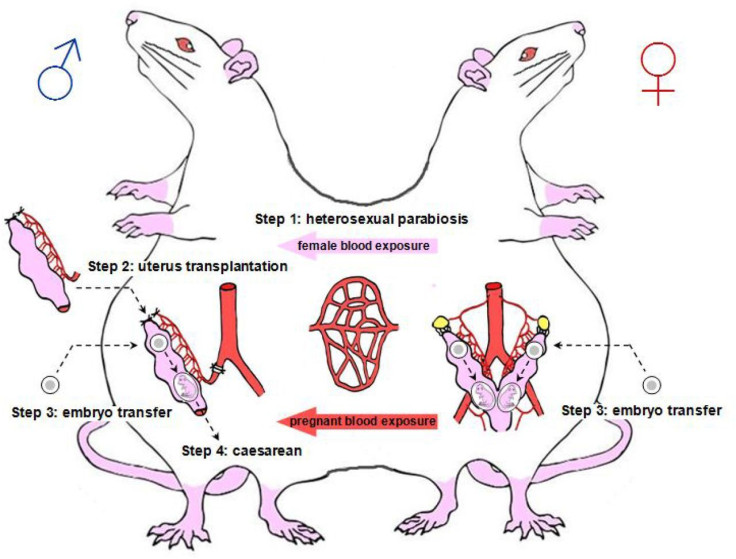Chinese scientists from the Naval Medical University in Shanghai have efficaciously conducted an experiment where a male rat has given birth through Caesarean section after sewing its body to a female rat and transplanting the uterus.
“Our experiment reveals the possibility of normal embryonic development in male mammalian animals, and it may have a profound impact on reproductive biology,” the study says.
According to The DailyMail, the study didn't say what the ramifications are for people, but it comes following research explored the feasibility of uterine transplantation in transgender people.
According to the team of scientists, they achieved the experiment through a four-step strategy where they castrated a male rate and then blood-exchanged with a female rat to obtain a similar female microenvironment.
They performed a uterus transplant was then performed on the male rat and observed updates on embryonic development in the grafted uterus of the male rat with the pregnant blood exposure to the female.

After that, the blastocyst-stage embryos were transferred to both the grafted uterus of the male rat and the grafted uterus of the female rat.
The study also shows that all fetuses survived at the time of cesarean section with the female rats, but some of the pups died two hours later due to early termination of pregnancy. There was also a reported resorbed fetus, and some of them still died a couple of hours later.
During the cesarean sections of the male rats, the scientists found abnormal dead fetuses that had never occurred in other groups. The dead pups are described as different morphology and color compared with normal fetuses and having placentas atrophy or swelling.
Nonetheless, the People for the Ethical Treatment of Animals (PETA) slammed the experiment, calling it “vile” and unnatural. Emily McIvor, PETA's Senior Science Policy Advisor, described the experiment as "frankenscience."
“Surgically joining two sensitive rats – who endured mutilation and weeks of prolonged suffering – is unethical and in the realm of Frankenscience,” she told The DailyMail.
“Rats have nervous systems just like those of humans… they feel pain, fear, loneliness, and joy, just as humans do,” she added. “The main result, ‘abnormal’ dead fetuses,” she continued.
The study has 46 pairs of rats that were surgically conjoined where both studies were made pregnant. About 562 embryos transferred to the female half and 280 embryos transferred to the male halves.
The study published that 169 embryos developed normally in the native uteruses of female rats, while only 27 embryos developed normally in male rats. Only 10 pups were successfully born with the male rats that survived into adulthood and are considered functionally reproductive.
© 2025 Latin Times. All rights reserved. Do not reproduce without permission.




